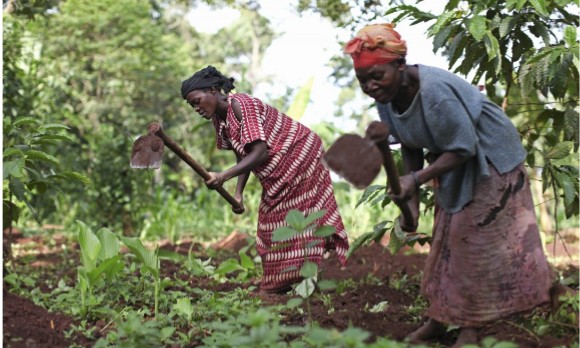By Joyce Mukucha
Worldwide, communities have been hit hard by the sudden and unprecedented spread of the novel coronavirus (COVID-19) and the impact of the pandemic has not spared rural women and girls who are already held back by gender economic inequalities as well as deeply engrained social norms.
Trying to have a deep insight on how women and girls are coping during this pandemic, this publication conducted some interviews with different groups of women in different Zimbabwean communities and figured out that COVID-19 has disproportionately exacerbated their suffering and experiences of inequalities.
In an interview with a 23-year-old Nyaradzo Mukwesha of Karoi Rural, she highlighted that rural-based women were at a disadvantage during this pandemic.
“As women, we have our unique health needs and since the onset of COVID-19 we have been experiencing challenges in as much as accessing quality health services, essential medicines and vaccines is concerned,” she said.
With a quivering voice whose sorrowfulness could be figured out on a phone call, another Magunje woman, Trish Mhizha pointed out that rural women have a crucial role in agriculture, food security and nutrition yet they already face struggles in their daily lives and the pandemic made the matters worse.
“We play a crucial role in ensuring the sustainability of rural households and communities, improving rural livelihoods and well-being but due to COVID-19, our significant contributions have been hindered. Already, we were lacking equal access to productive resources and assets, public services such as education and health care and infrastructure including water and sanitation and much of our labour remains invisible and unpaid. With the COVID-19 pandemic, our work become increasingly heavy as well,” she said.
According to UN Women News published on October 5, 2020, gender responsive investments in rural areas have never been more critical and the pandemic has also heightened the vulnerability of rural women’s rights to land and resources.
“Discriminatory gender norms and practices impede women’s exercise of land and property rights in most countries and COVID-19 widows risk disinheritance. Women’s land tenure is also threatened as unemployed migrants return to rural communities, increasing pressure on land and resources and exacerbating gender gaps in agriculture and food security,” reads the UN Women publication.
Celebrating the International Day of Rural Women in October this year, UN Women theme was, ” Building Rural Women’s Resilience in the wake of COVID-19.”
The theme aimed at creating awareness of these women’s struggles, their needs and their critical and key role in their societies.
Speaking to this publication, other women in the most marginalised remote villages of Hurungwe in Mashonaland West Province, emphasised that there was need for Government and other UN agencies to advocate for sufficient infrastructure and services which include water, health, and electricity among other essential services to support women’s productive, unpaid care and domestic work which is exacerbated by the COVID-19 crisis.
They indicated that there was a need to craft mechanisms to allievate the care burden and better redestribute it between men and women and between families and commercial services.
“As rural women, we were and we are still at the forefront of responding to the pandemic despite the fact that our unpaid care and domestic work increased during lockdowns. We plead that Government, Civil Society Organisations and other stakeholders create measures that improve livelihoods of rural women,” said another woman.
UN Women statics also indicate that women and girls in rural areas suffer disproportionately from multi-dimensional poverty.
“While extreme poverty has declined globally, the world’s 1 billion people, who continue to live in unacceptable conditions of poverty are heavily concentrated on rural areas. Poverty rates in rural areas across regions are higher than those in urban areas. Yet smallholder agriculture produces nearly 80% of food in Asia and Sub-Saharan Africa and supports the livelihoods of some 2,5 billion people.”
The assessment by UN Women on the impact of COVID-19 in Viet Nam also indicated that structural barriers and discriminatory social norms continue to constrain women’s decision making power and political participation in rural households and communities.






